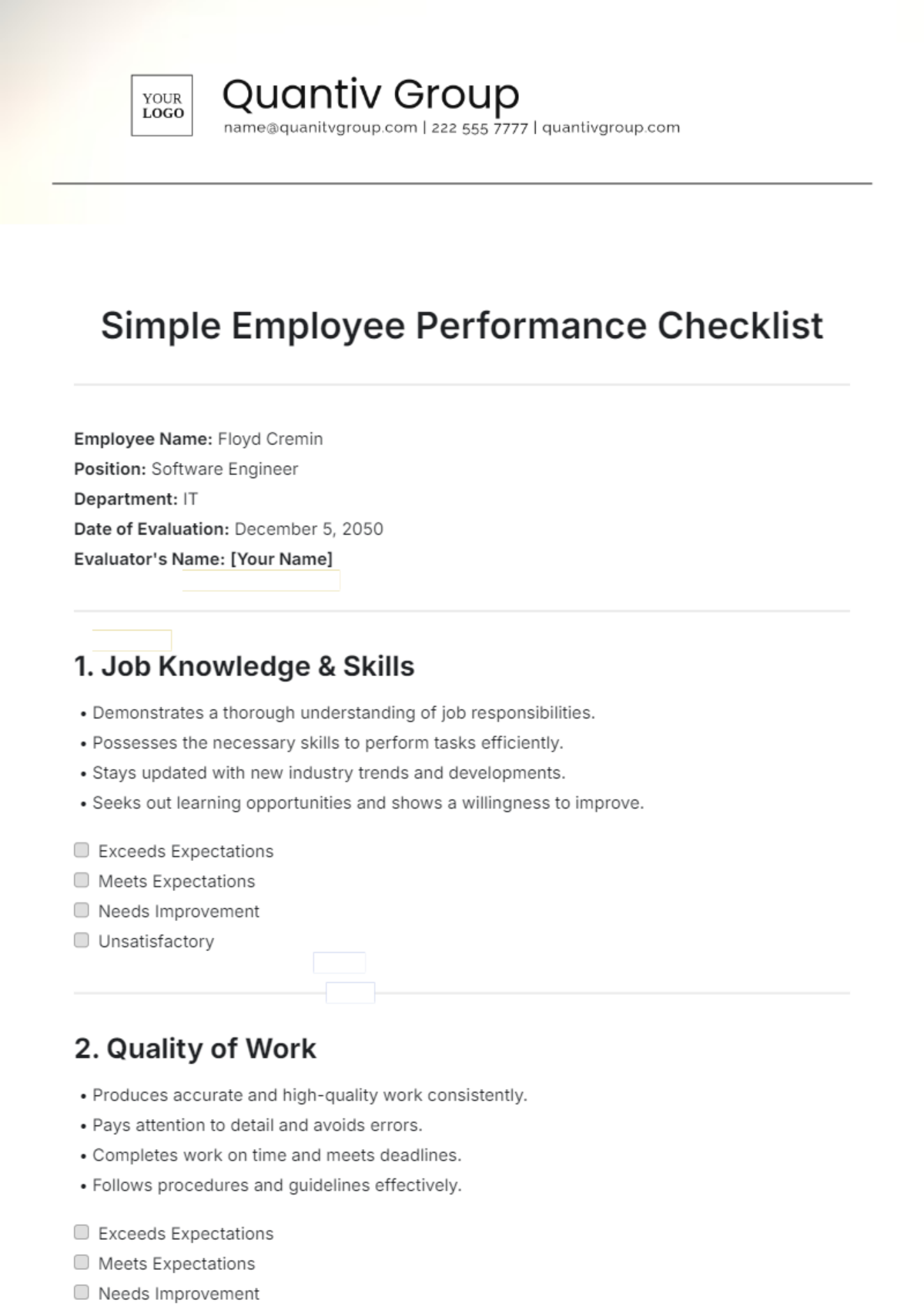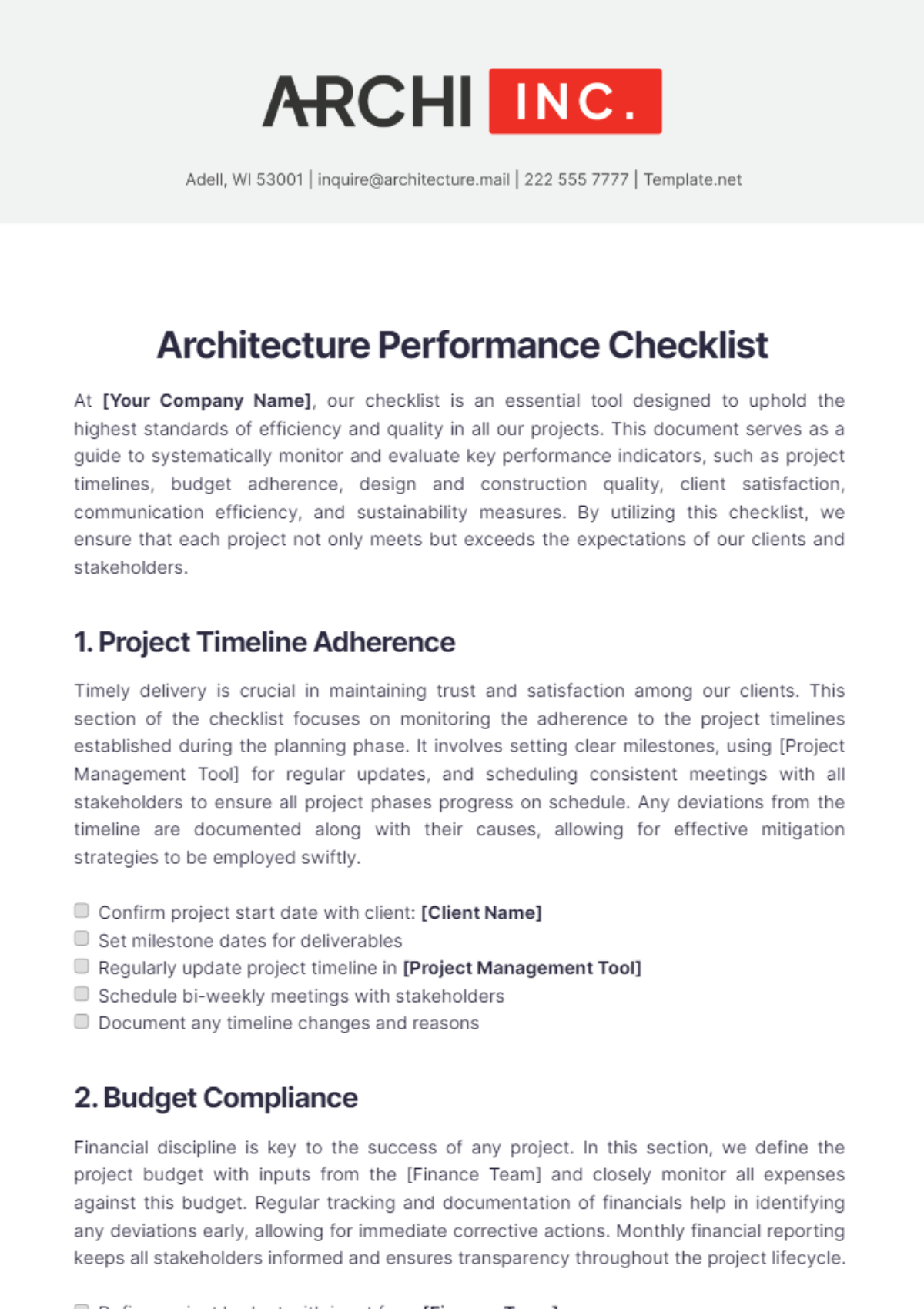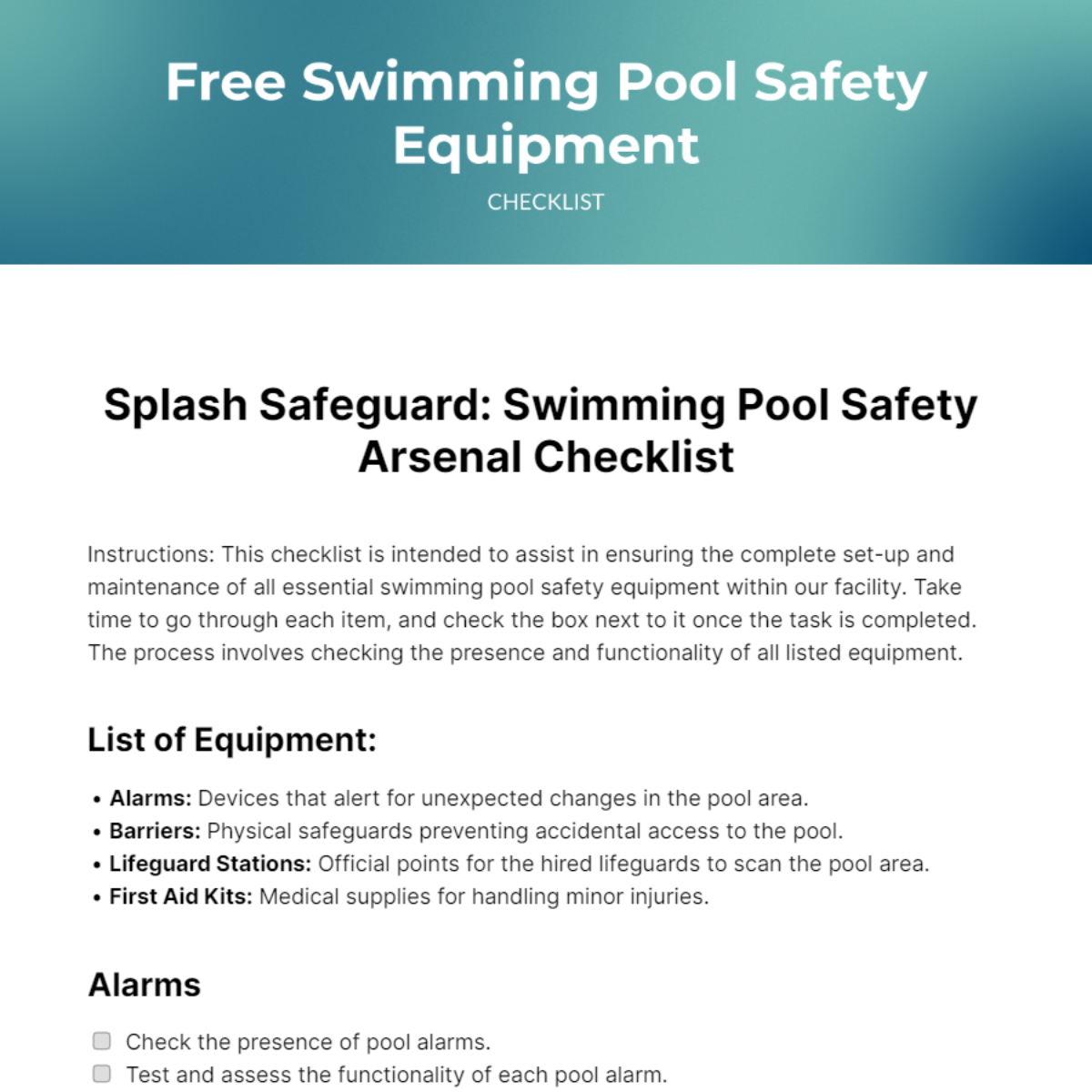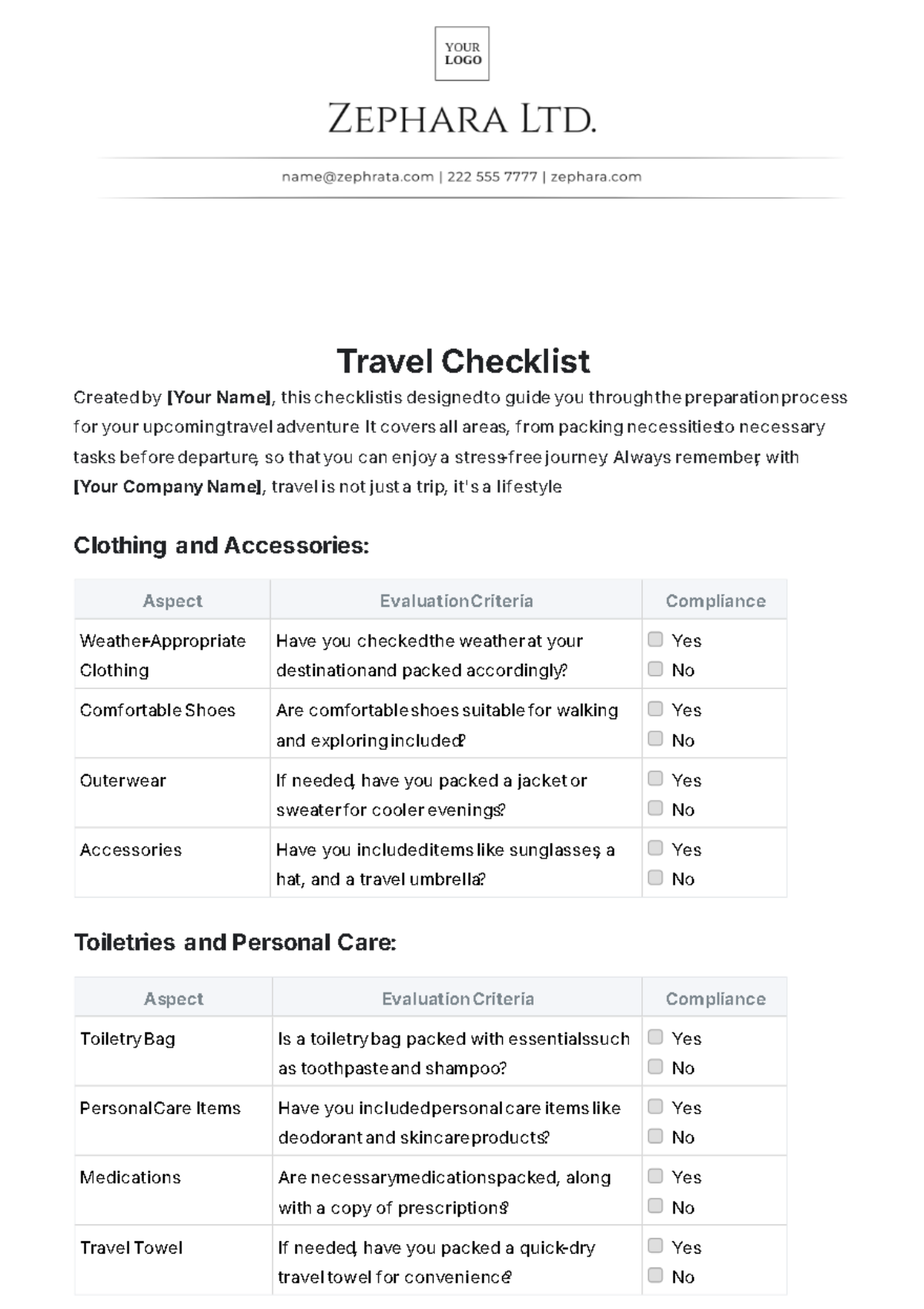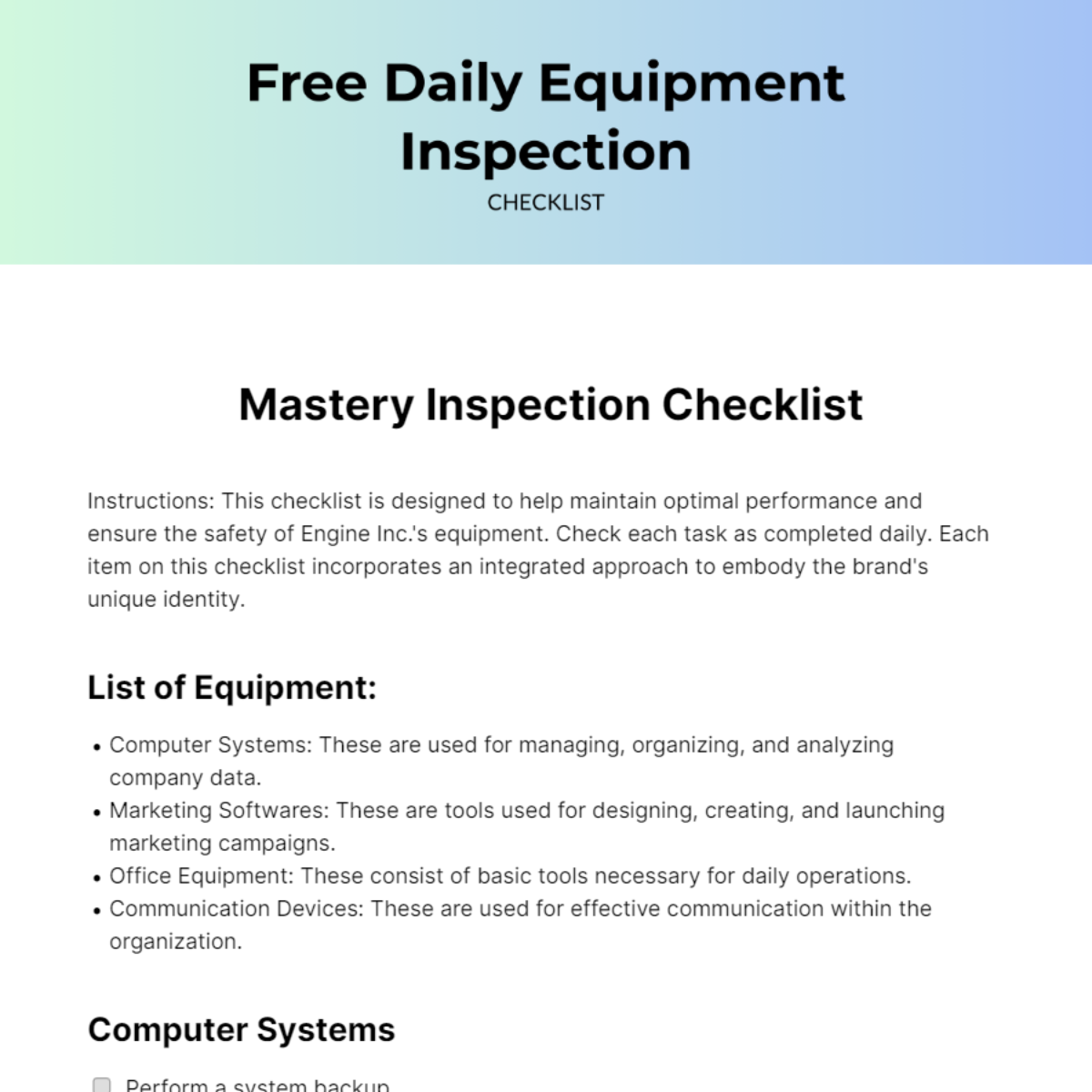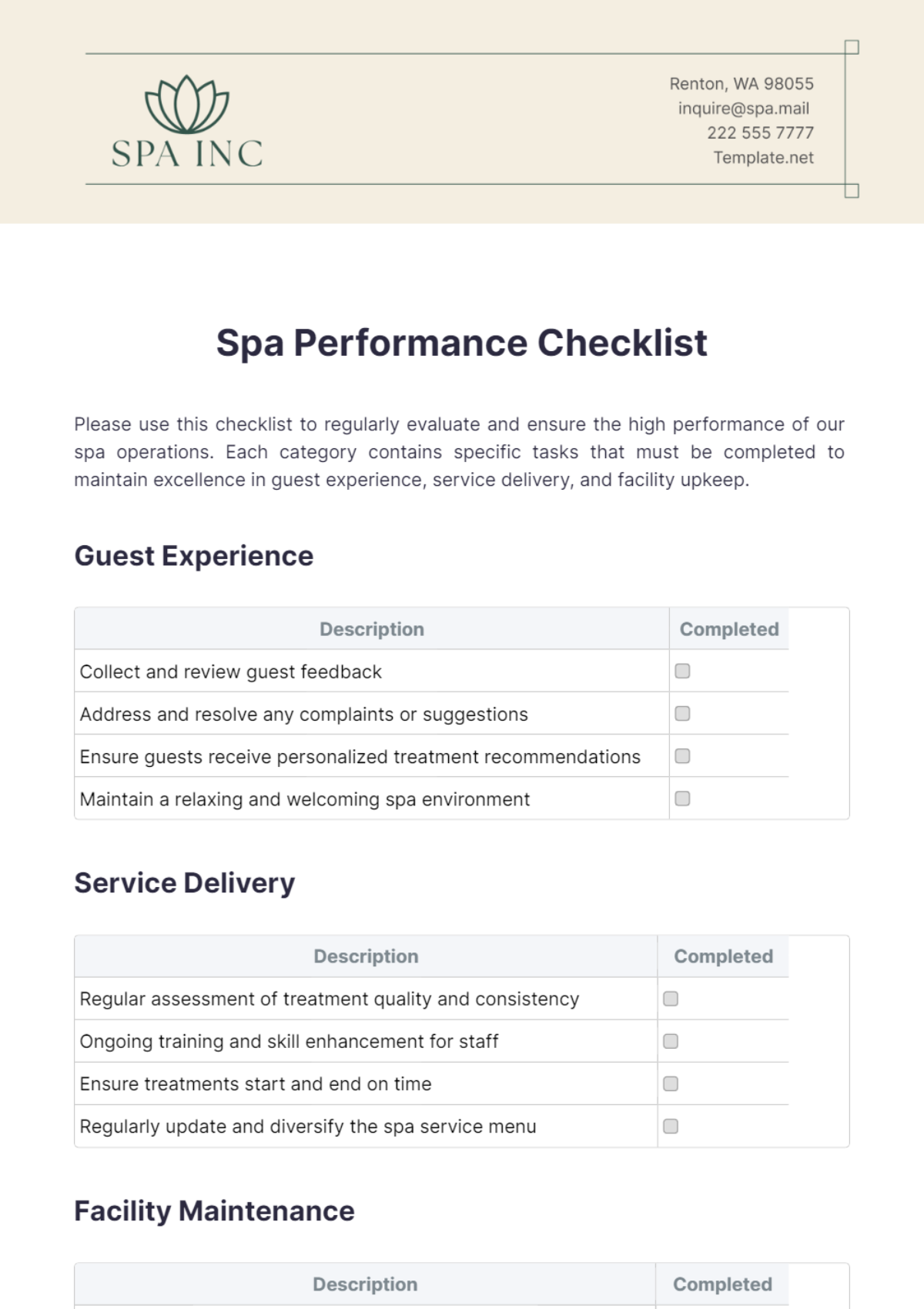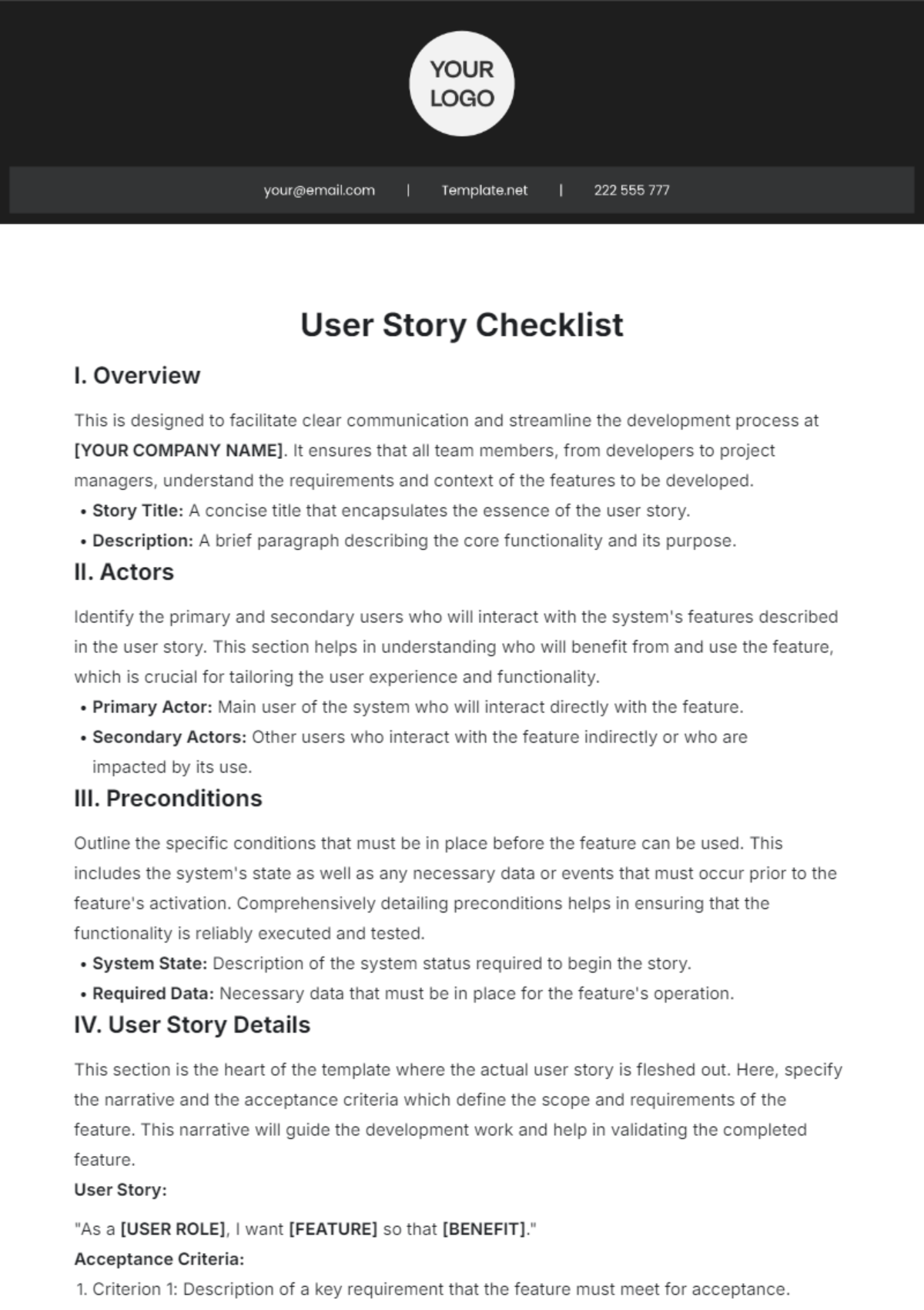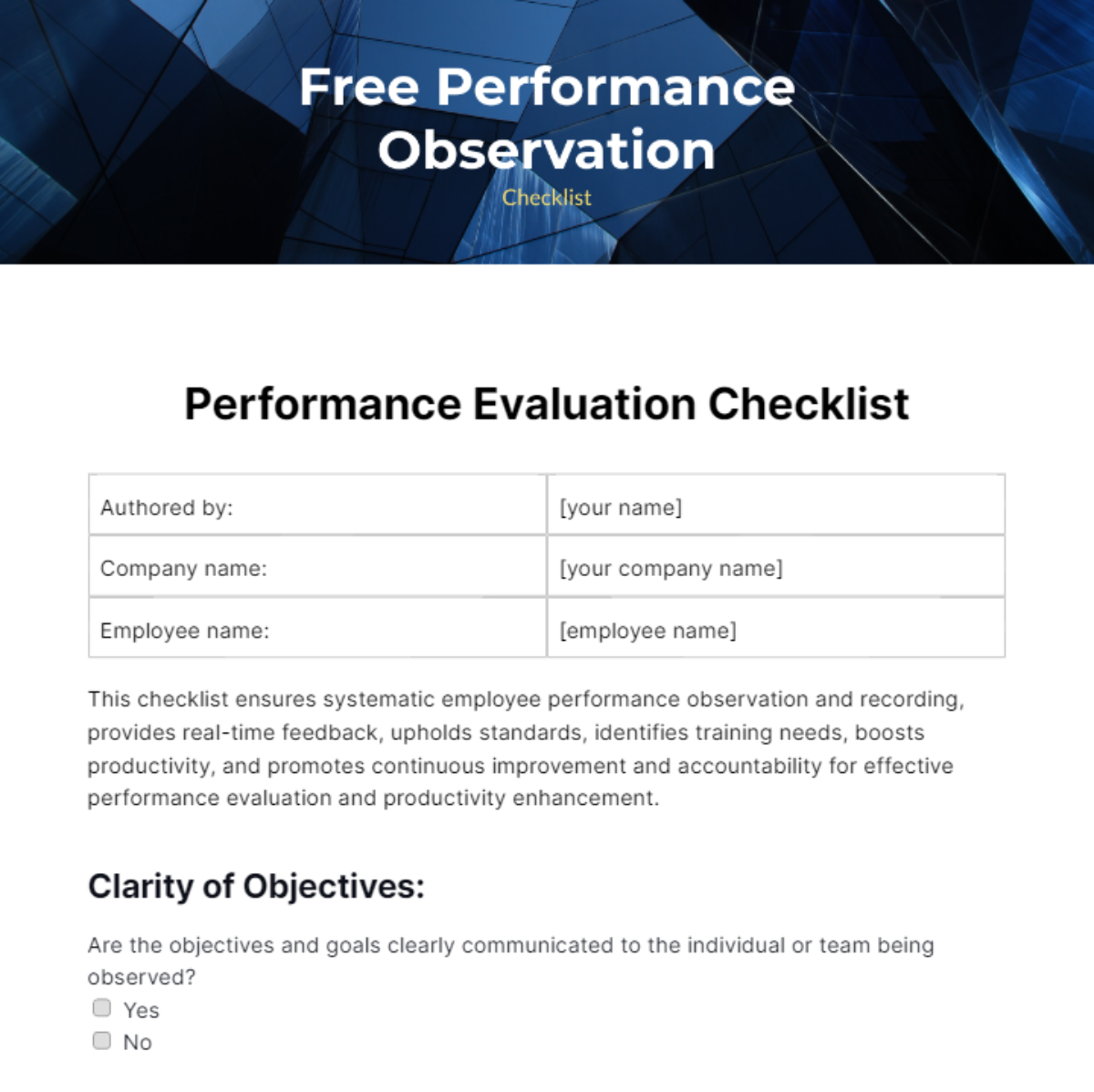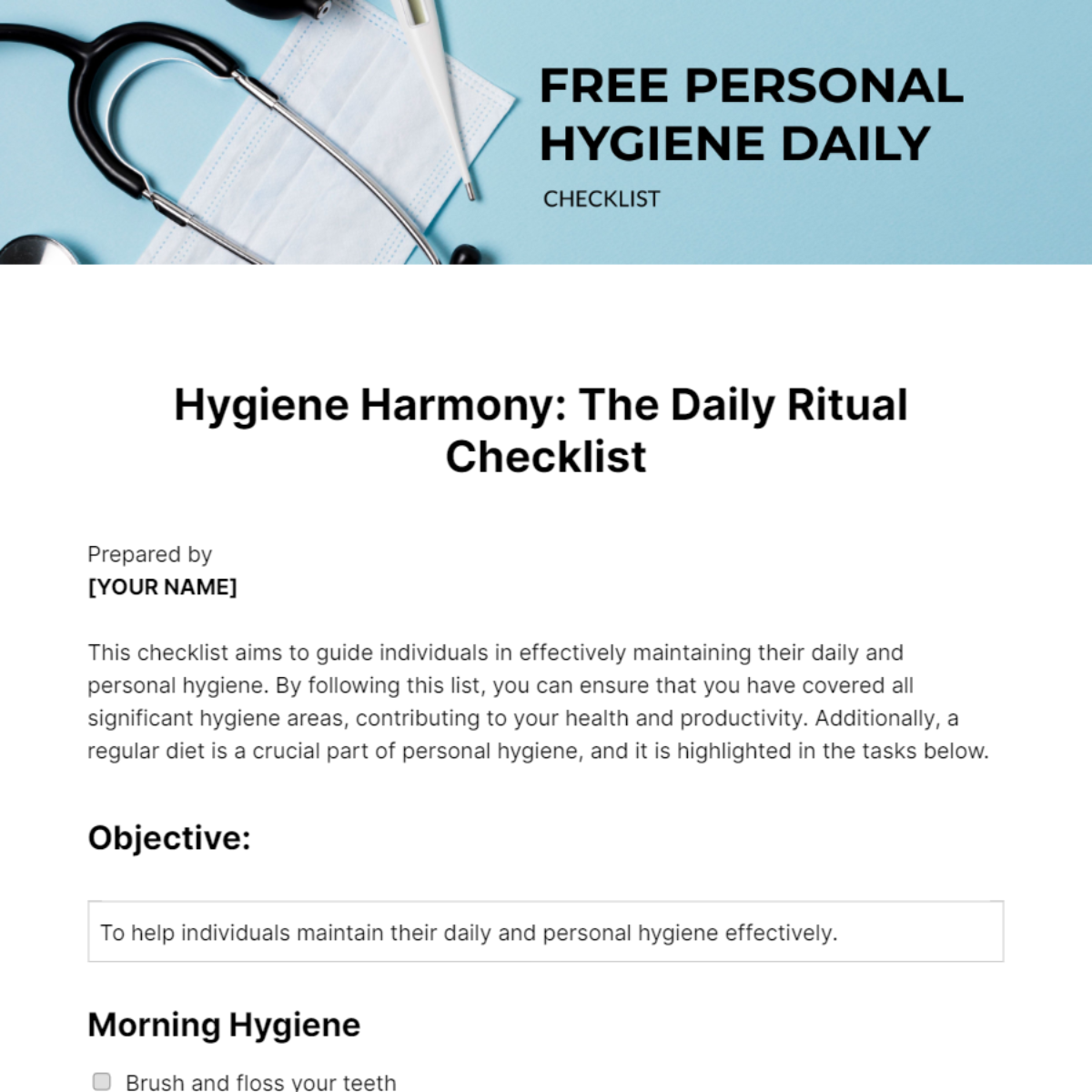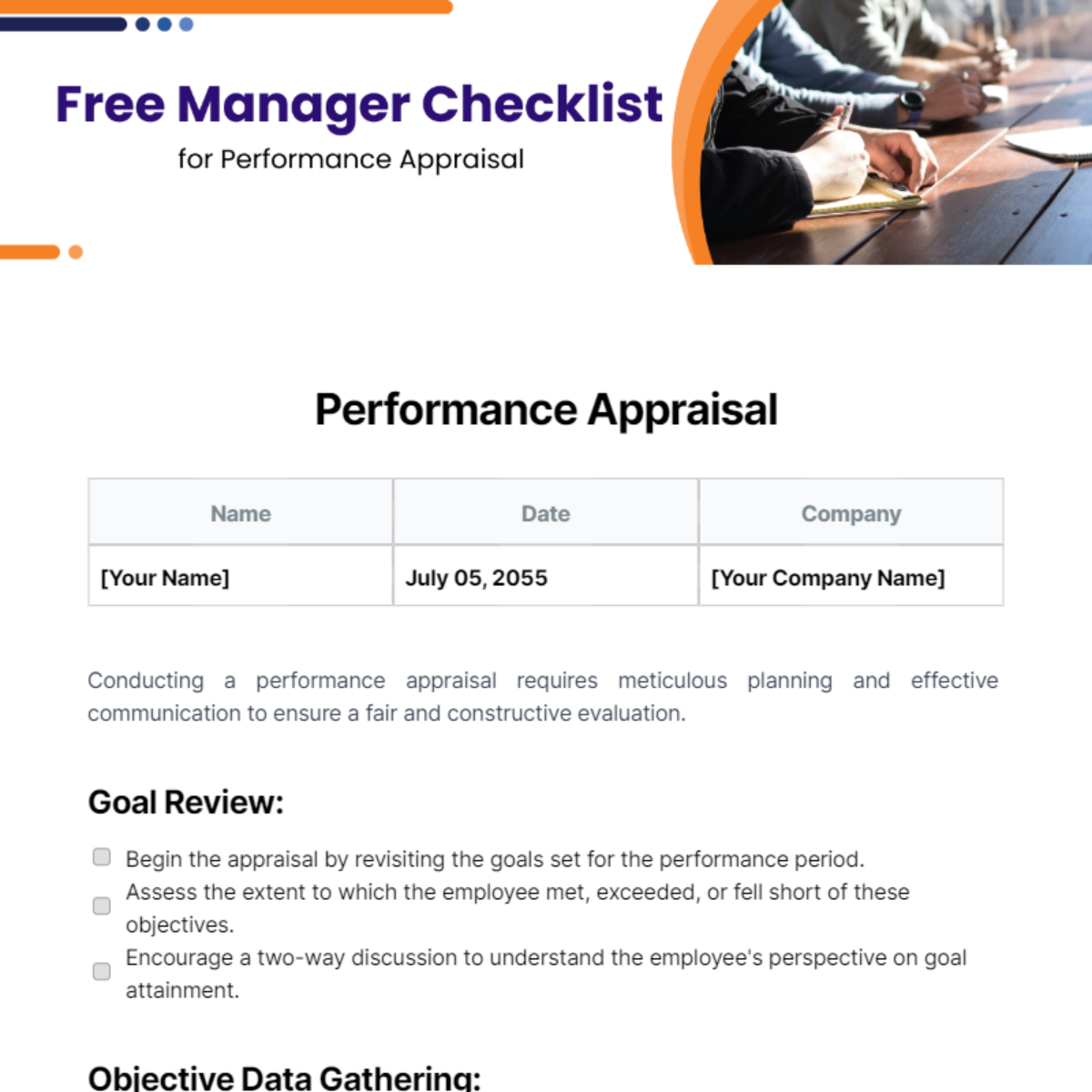Performance Appraisal
Name | Date | Company |
|---|---|---|
[Your Name] | July 05, 2055 | [Your Company Name] |
Conducting a performance appraisal requires meticulous planning and effective communication to ensure a fair and constructive evaluation.
Goal Review:
Begin the appraisal by revisiting the goals set for the performance period.
Assess the extent to which the employee met, exceeded, or fell short of these objectives.
Encourage a two-way discussion to understand the employee's perspective on goal attainment.
Objective Data Gathering:
Collect objective data to support the evaluation, including performance metrics, project outcomes, and achievements.
Review attendance records, quality of work, and any other quantifiable measures relevant to the role.
Consider feedback from peers, subordinates, and other stakeholders.
Strengths Recognition:
Acknowledge and highlight the employee's strengths and positive contributions.
Provide specific examples of commendable performance, emphasizing the impact on team or organizational success.
Foster a positive atmosphere by recognizing achievements and reinforcing valued behaviors.
Areas for Improvement:
Identify specific areas where improvement is needed, focusing on performance-related issues rather than personal traits.
Offer constructive feedback with actionable suggestions for enhancement.
Discuss potential training or development opportunities to support improvement efforts.
Developmental Goals:
Collaborate with the employee to establish meaningful and achievable developmental goals.
Align developmental goals with the employee's career aspirations and organizational needs.
Discuss the resources and support available for achieving these goals.
Competency Assessment:
Evaluate the employee's competencies based on the required skills for the role.
Identify areas where competencies are demonstrated effectively and those that may require further development.
Discuss strategies for enhancing competencies and skills.
Feedback Delivery:
Deliver feedback in a constructive and professional manner, maintaining a focus on performance rather than personality.
Use clear and specific language to convey both positive feedback and areas for improvement.
Encourage open dialogue, allowing the employee to share their perspectives and insights.
Recognition of Extra Efforts:
Acknowledge and appreciate any extra efforts or contributions that go beyond the standard expectations.
Connect extra efforts to the overall success of the team or organization.
Reinforce a culture of appreciation for dedication and initiative.
Goal Setting for the Future:
Collaboratively set performance goals for the upcoming period, ensuring they are SMART (Specific, Measurable, Achievable, Relevant, and Time-bound).
Align future goals with the organization's objectives and the employee's career development plan.
Establish a plan for regular check-ins to monitor progress and provide ongoing feedback.
Developmental Support:
Discuss the support available for the employee's professional development.
Identify relevant training programs, mentorship opportunities, or resources that can aid in skill enhancement.
Reinforce the organization's commitment to employee growth and career progression.
Performance Improvement Plan (if necessary):
If significant performance issues exist, collaboratively develop a Performance Improvement Plan (PIP).
Clearly outline expectations, timelines, and milestones for improvement.
Offer support and resources to help the employee meet the outlined objectives.
Documentation and Record-Keeping:
Maintain thorough documentation of the performance appraisal discussion.
Record key points, agreements, and action items.
Ensure all documentation complies with data protection and privacy regulations.
